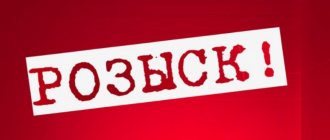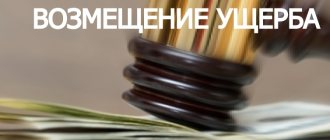Even during desk audits, inspectors notice cash-out schemes and may even suspect honest companies. As a result, the chief accountant may turn out to be the extreme one, and in order to avoid accusations, it is worth taking measures to protect yourself.
Tax officials only need to find cash to prove the unreal delivery. Then they will remove the costs and deductions for the transaction and may open a criminal case. Company employees, primarily the chief accountant and director, may be accused of fraud, organizing a criminal community and other illegal actions.
There is much less cash, but it has not disappeared completely. In the article you will learn where and how inspectors calculate cash out.
How controllers figure out cashing schemes
Inspectors do not look for cash separately; it is of interest to inspectors as evidence that the company is evading taxes ( clause 12 of the Methodological Recommendations, approved by Federal Tax Service letter No. ED-4-2 dated July 13, 2017 / [email protected] ).
Now the inspector does not need to conduct an on-site inspection to detect cashing. Sitting in his office, he sees reports from ASK VAT. The updated program helps track where product and cash flows diverge.
Now the information is visible in all regions without exception, and you can build a chain to the final buyer. Tax officials say that there are practically no cases when money is cashed out by a seller from the first or second level.
It is suspicious when a company transfers money to companies on special regimes, entrepreneurs or “physicists”. Especially if the supply chain breaks down on them. Inspectors will see this, including from account statements. The company will be asked for clarification, and then they may arrange an on-site inspection.
Cashing out is not always visible through “ASK VAT”. After all, companies can simply withdraw money from the account without VAT fraud. But this will only be found during an on-site inspection. And the reason for it may be information from other departments.
Now inspectors have access to information from banks covering all of Russia. Banks themselves monitor payments more, so cash withdrawals are reduced.
Inspectors can receive a tip on cash transactions from the police. Tax authorities have more experience to detect illegal activities in finance. That's why they are called to help.
Information is received from the Ministry of Internal Affairs or from Rosfinmonitoring so that the cashing can be checked. While the inspectors are helping, they will also check what interests them. If tax violations are found, the company will be summoned to a commission. And guesses about cashing out will simply be confirmed by the police or Rosfinmonitoring.
If the tax authorities received information about suspicious transactions from the police, then the company is already under development by the Ministry of Internal Affairs. Police officers cooperate with tax authorities and vice versa. When the tax office has decided that it has found cash, it can also invite the police to its inspection ( clause 8 of the Instructions, approved by order of the Ministry of Internal Affairs, Federal Tax Service dated June 30, 2009 No. 495/MM-7-2-347 ). Then the police will begin operational activities: surveys, wiretapping, etc.
The inspectors have one more sign. They recognize the cashing organization by name. When a company is created for several operations, they don’t think twice about what to call it. Because of this, an honest business may suffer if it decides to be called, for example, “Orion.” There are about 15 thousand organizations with this name in the Unified State Register of Legal Entities.
When they suspect that a company is ordering cash
Organizations that do not try to unblock accounts when they are frozen are at risk. For example, a company has had its operations suspended and does nothing for a month. For inspectors, it is suspicious how the company manages without the ability to manage money. If she continues to work, it means she has figured out a way to pay her suppliers. The tax authorities will check whether it is legal.
Unusual forms of settlements come under suspicion: for example, when companies carry out mutual settlements or the buyer pays for the organization with the supplier ( Decision of the Supreme Court dated 01.02.2018 No. 304-KG17-21566 ). Controllers suspect that counterparties may transfer money to the cashing organization. Then the company will receive cash and will be able to do without a current account longer.
A blocked account in itself does not mean that the company will use the services of cash-out platforms. And special forms of calculations also do not prove the scheme. After all, offset is a legal way, and now you can even pay taxes for another company.
Inspectors suspect that a company is cashing out if it or its counterparty cooperates with a little-known bank. Controllers believe that such credit institutions can be more loyal to their clients.
Usually, a not very scrupulous bank is chosen for cash-out schemes. So that he does not look closely at payment transactions.
If a bank is little-known, this does not mean that it covers illegal transactions. It may be beneficial to work with him for other reasons. After all, in order to attract customers, such banks offer, for example, low fees for account servicing. To create attractive conditions, a bank does not have to ruin its reputation with cash-out schemes.
When they suspect that a counterparty is engaged in cash withdrawal
Usually, cash withdrawals are carried out through one-day accounts; tax authorities calculate them based on the criteria listed by the Federal Tax Service ( letter dated July 24, 2015 No. ED-4-2/ [email protected] ). But tech companies that cash out have a twist.
Such companies do not last long. And they try not to use their services twice, so as not to arouse suspicion.
Inspectors suspect that a company is helping to cash out money if it looks like a transit company. That is, she has no resources and no economic expenses.
The transit company can receive payments to its bank account for repairs, commissioning work, and construction materials. And they write off money for a wide variety of purposes: “providing an interest-bearing loan”, “crediting to a card”, “for fish products”, “for dairy products”, “for vegetables and fruits”, “for carpets and mattresses”, “for a car and a boat "( Resolution of the Third Arbitration Court of Appeal dated October 5, 2017 No. A33-2737/2017 ). Companies whose nature of transfers in their accounts do not correspond to their type of activity from the state register are under suspicion.
There is another sign: the company transfers a lot to the bank cards of “physicists”. And if, during an on-site inspection, inspectors find bank cards themselves in the company’s office, this will prove cashing ( clause 13.1 of the Methodological Recommendations, approved by letter No. ED-4-2/ [email protected] ).
What cashing schemes do inspectors know?
Inspectors say that there are many illegal cash-out schemes, but during audits tax officials most often encounter two popular schemes that are easy to calculate.
Scheme No. 1.
The company that orders the cash transfer transfers money to a friendly supplier, allegedly for the delivery of goods. Then, through a chain of counterparties, the money eventually ends up in the account of an employee of the final supplier. Money is transferred to the “physicist” under the guise of issuing or repaying a loan, or transferred as accountable funds to a corporate card.
The money can be transferred to any other “physicist” or entrepreneur. In this case, the purpose of payment is set to “for, etc.” If money is transferred to a “physics” card, then the purpose of payment is “loan transfer”, “salary”.
Bank card blocking
The state obliges banks to decisively combat the cashing out of illegal income. This is done on the basis of Federal Law No. 115, which is called “On combating the legalization (laundering) of proceeds from crime and the financing of terrorism.” If a financial institution does not prevent the identified money laundering process, it risks receiving a huge fine or even losing its license.
Therefore, banks block accounts that contain dubious transactions.
. The full list of transactions that raise suspicions with the Central Bank is publicly available and takes up 19 A4 sheets. The main signs of suspicious activity are as follows:
- a large sum of money is deposited into your bank card account and quickly cashed out;
- sums of unknown origin arrive regularly and are also cashed out.
If a transaction comes under suspicion, the financial institution refuses to carry it out and blocks the card. The funds remain in the account, but their owner is temporarily deprived of access to the money. To unblock the account, he must provide the bank with an explanation of where and on what basis the money is coming to his card.
who received a money transfer from his relative
may come under suspicion and have his card blocked A card can also be blocked due to a failure in the system (for example, after a regular transfer in the amount of 1,000 rubles).
To solve the problem, a law-abiding card holder will have to contact bank employees and explain who made the transfer and why
. Sometimes one call to support is enough. Sometimes you have to give explanations in writing. It happens that the solution to the problem is delayed for a long time and is accompanied by various complications.
If you receive transfers from relatives quite often, then we advise you simply not to cash out the money, but to pay by non-cash method
wherever possible. Transparent financial transactions do not raise suspicion among banks.
If you are an individual entrepreneur, then it is necessary that all funds received into your account be supported by documents
(service agreements, invoices). It is also advisable to have certificates from the tax office confirming payment of all due contributions. Then, when withdrawing money from your current account to a debit card and further cashing out, you will be able to prove to bank employees the legality of the origin of this amount of money.
How to safely process documents so as not to be accused of cashing
You can prevent claims regarding cashing out by protecting the company and the chief accountant.
Organizational leaders plan dubious transactions and entrust accountants to carry them out. If you believe a company is cashing in and illegally saving on taxes, then the only safe option is not to work for it.
What documents will protect you from charges? Information for the chief accountant
If there are only suspicions of fictitious transactions, the chief accountant can protect internal documents. They should be drawn up, for example, when management is going to transfer something other than salaries to the “physicists”: uncharacteristically large amounts of accountables or loans.
You also need to insure yourself if the management has started an atypical deal. For example, a company provides consulting services and is going to purchase agricultural products. The supplier may turn out to be a one-day operation through which money is funneled for cashing out.
If the operation raises concerns, please notify the director in advance. In the case of a criminal case, the manager can present the chief accountant as the initiator of the schemes. To prevent this from happening, you need to inform management in writing about possible illegal transactions. This will show that it was not the chief accountant who planned the transactions.
Draw up a memo in two copies, keep one of them with the director’s signature. In the note, explain the reason for your suspicions. There is no point in declaring unequivocally that the transaction the company is planning is illegal. Then, in case of complaints, tax authorities and investigators will decide that the chief accountant knew about this and he deliberately committed a violation. Name only the signs and possible consequences.
If the head of the company insists on the transaction, take a written order from him to record the transaction in accounting and make payment. The document will prove that the chief accountant only obeyed, and did not organize the scheme.
What documents will protect the company?
To protect the company, you should prepare in detail the primary documents for transactions that usually cause suspicion among tax authorities. For example, services the reality of which is difficult for inspectors to verify.
The tax authorities see the accountables as cash, so all documents must be in place. During the inspection, inspectors will verify advance reports, staffing schedules, and orders for the issuance of money.
If you transfer accounts to corporate cards, make a list of employees who have the right to pay with cards and withdraw money from them. Update the list when employees change.
Write down internal rules on how employees should use the organization’s corporate cards. Prohibit employees from withdrawing large amounts from cards or set a withdrawal limit. Also set rules for when you can receive cash. For example, on business trips. If tax officials have questions, provide a copy of the rules.
What is illegal “cash out”
First, let's understand the concepts: what is “illegal” cash withdrawal and why law enforcement agencies are fighting this phenomenon.
If a person receives a salary on a bank card
, and then cashes it out at an ATM, then such
cash withdrawal is not illegal
.
When a person pays for goods and services non-cash, all his expenses become transparent. Banks and related structures can see what amounts the buyer is spending and on what. And this does not suit everyone. Paying with sellers with a plastic card or cash is the choice of each individual citizen. The main thing is that the person’s source of income is legal
- wages transferred by the employer, or profit from running his own business.
Questions to a citizen from banks and law enforcement agencies can only appear when the source of his income is unclear
. Let’s say a person receives a transfer to his bank card (most often for a large amount), and he immediately cashes it in full. Why are such translations suspicious?
The state and the banking system have done everything so that payments for large sums between organizations and people can be made in an easy and transparent non-cash way: by debiting money from one bank account and crediting it to another. And when people cash out a large transfer, it is quite possible that they are going to spend the money on purchasing goods prohibited by law (drugs, weapons) or thus avoid paying taxes
You cannot pay for a shipment of drugs, explosives for committing a terrorist attack, or weapons stolen from military units by transferring money from one account to another. Payments between criminal groups
are made
(as shown in action films) using suitcases with
cash
.
Cash payments are also practiced by businessmen who hide from paying taxes.
. The state does not have the ability to control the income and expenses of enterprises that do not go through bank accounts. Taking advantage of this, some entrepreneurs conduct “shadow” activities, do not pay taxes to the state and thus increase their profits. And the budget, as a result, receives less income.
Therefore, law enforcement agencies are suspicious of large cash withdrawals
. But how can an ordinary person (who has nothing to do with the drug trade and is not hiding from taxes) encounter the processes of illegal “cash out” and laundering of criminal money?
What will be the consequences of being accused of cash-out schemes?
After a tax audit, chief accountants may be accused of a crime. And not only in non-payment of taxes, but also in fraud or cash-out. The most loyal sentence is a fine, and the most severe is a real sentence.
Tax evasion
The inspectorate will assess additional taxes to the company. If the arrears exceed 5 million rubles. and will amount to a quarter of all taxes, this information will be passed on to investigators. Moreover, both the director and the chief accountant can become accused under Article 199 of the Criminal Code. You can avoid trial if you pay taxes before the court hearing ( Article 28.1 of the Code of Criminal Procedure ).
For a crime under Article 199 of the Criminal Code, judges give a real sentence. For non-payment of taxes on a large scale, the maximum term is two years, and on a particularly large scale - six years. In the first case, the statute of limitations is two years, and in the second - 10 years ( Article 15, 78 of the Criminal Code ). If these deadlines have expired, you will be able to avoid liability.
Fraud
The chief accountant may be accused of stealing the company's money, taking advantage of the manager's trust. At the same time, there is no limit on the amount of fraud ( Article 159 of the Criminal Code ). For such a crime a sentence of up to 10 years can be imposed. But most often, judges give suspended sentences.
In addition, the chief accountants can be charged money that, due to their fault, the budget did not receive ( Resolution of the Constitutional Court dated December 8, 2017 No. 39-P ). But often investigators involve them as witnesses, since all reports are signed by the director, and not the chief accountant. He only receives primary documents, enters information from them into the accounting program and prepares reports. There is no intent of the chief accountant here, this is an oversight for which there is no criminal prosecution ( Part 2 of Article 25 of the Criminal Code ). The chief accountant may be accused of VAT fraud if he made the reimbursement for himself, without the participation of the director ( sentence of the Central District Court of Chita dated June 22, 2015 No. 1–15/2015 ).
Illegal banking activities
The charge will be brought against the contractor, and not the person who ordered the cashing. If the company itself created the scheme, then the director or chief accountant can be prosecuted under Article 172 of the Criminal Code. For example, investigators opened a criminal case against the chief accountant after they calculated the unaccounted proceeds, which were used for cashing out ( decision of the St. Petersburg City Court dated November 14, 2016 No. 1-597/16 22-7906/2016 ).
The one who ordered cashing immediately loses expenses and VAT deductions. It will be possible to return them if the inspectors formally studied the chain and did not prove that the money was returned to the company ( resolution of the Arbitration Court of the East Siberian District dated September 25, 2017 No. F02-4671/2017 ).
Based on materials from gazeta-unp.ru
〰〰〰〰〰〰〰〰〰〰〰〰〰〰






